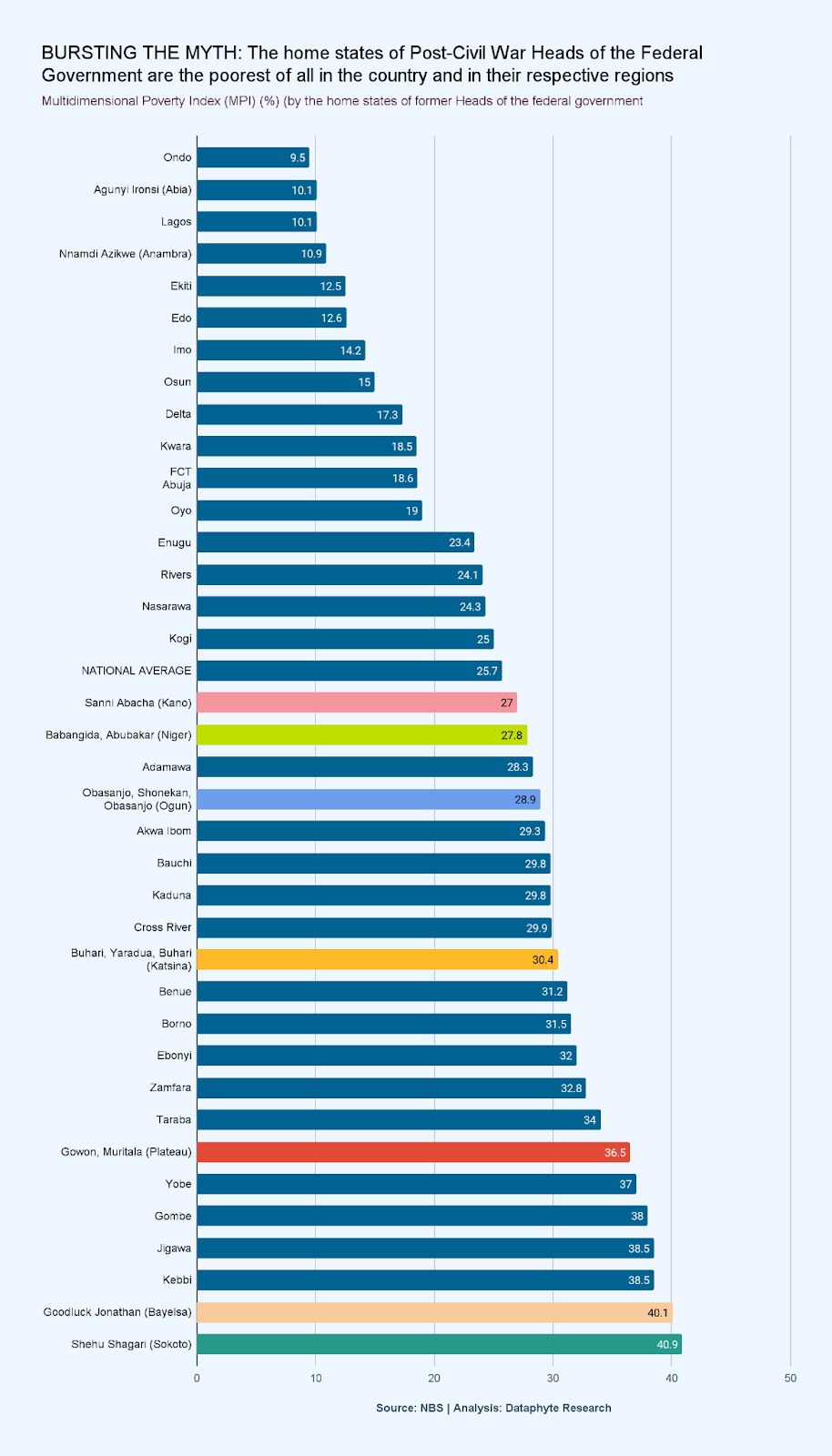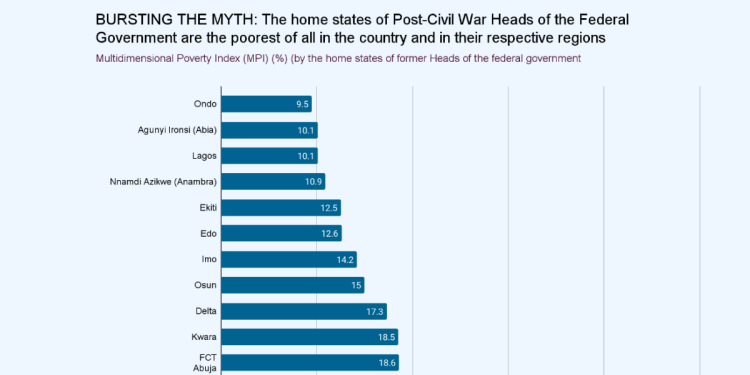Census and demographic data are not only falsified to acquire undeserved numbers of federal and state legislative seats. The purported numbers are also used to sway election outcomes in the interest of a false majority that decides Nigeria’s Presidents.
The Nigerian President handles 53% of the country’s revenues and chooses the individuals who stash away, share and supervise the country’s vast visible and veiled resources.
These enormous powers of the central federal government fuel the people’s presumption that having a person from their state, region, ethnicity, or religion as the President would fast-track the infrastructural development and economic growth of their people.
Data consistently debunks this myth.
Yet, when it comes to the 133 million multidimensionally poor people in Nigeria, this much is clear in the scheme of revenue distribution:
– 40% of the scarce financial resources allocated to states is based on clearly unequal equality.
– 30% of the same is shared, prioritising the more populous states and local governments over the less populated ones.
– An unequal contribution of IGR by each state but an equal distribution of the IGR pool among states discourages collection and full disclosure of IGR by states with high IGRs.
Indeed, the Nigerian variant of the politics of population fosters two more presumptions that increase the people’s privation, namely, federal might and federal allocation.
Federal might and poverty
Harping the power of the population for election victories rather than the pertinence of productivity for economic well-being comes with dire consequences.
This sits on the myth that the most populous people determine the person and path of the federal government and, as such, derive the highest returns from the federal government.
Yet, the poorest states in the country are the states that produced the heads of the federal government, especially after the end of the Civil War in 1966.

All the states that produced Nigeria’s heads of state or Presidents since 1967 all have their multidimensional poverty indices (MPIs) below the national average of 25.7% or 0.257.
With regards to multidimensional poverty:
– Sokoto, President Shagari’s home state, is the worst in the Northwest region.
– Bayelsa, President Goodluck’s state, is the worst in the South-south region.
– Ogun, Presidents Shonekan and Obasanjo’s home state, is the worst in the Southwest region, and
– Plateau, the home state of heads of state General Gowon and Muritala, is the worst in the North Central region.
– Kano, the home state of the head of state General Abacha ranks worse than the national average poor state.
– Niger, the home state of the heads of state General Babangida and Abubakar, ranks worse than the national average poor state.
– Katsina, Presidents Yaradua and Buhari’s home state, ranks worse than the national average poor state.
These states also have the worst poverty prevalence in their geopolitical regions.

The people (their numbers inflated and juveniles inserted) are further schooled to vote for selected candidates, whether they are competent or not, and promised nepotistic benefits. But data shows that the people never benefit from these nepotistic promises, whether the leaders are military dictators or civilian autocrats.
Though a few of the less privileged are financially empowered and strategically positioned to serve the sectional elite interest, the majority of the people are left high and dry.
Continue reading




